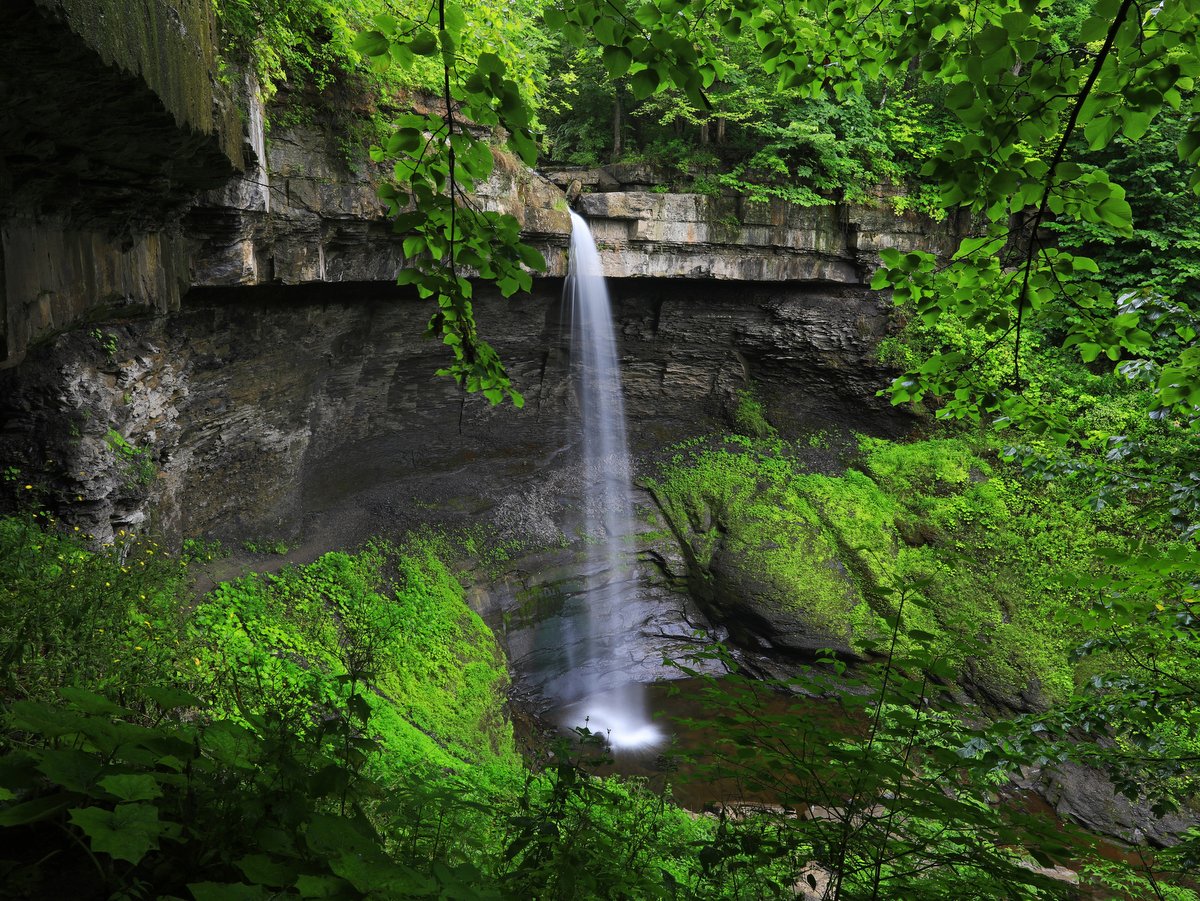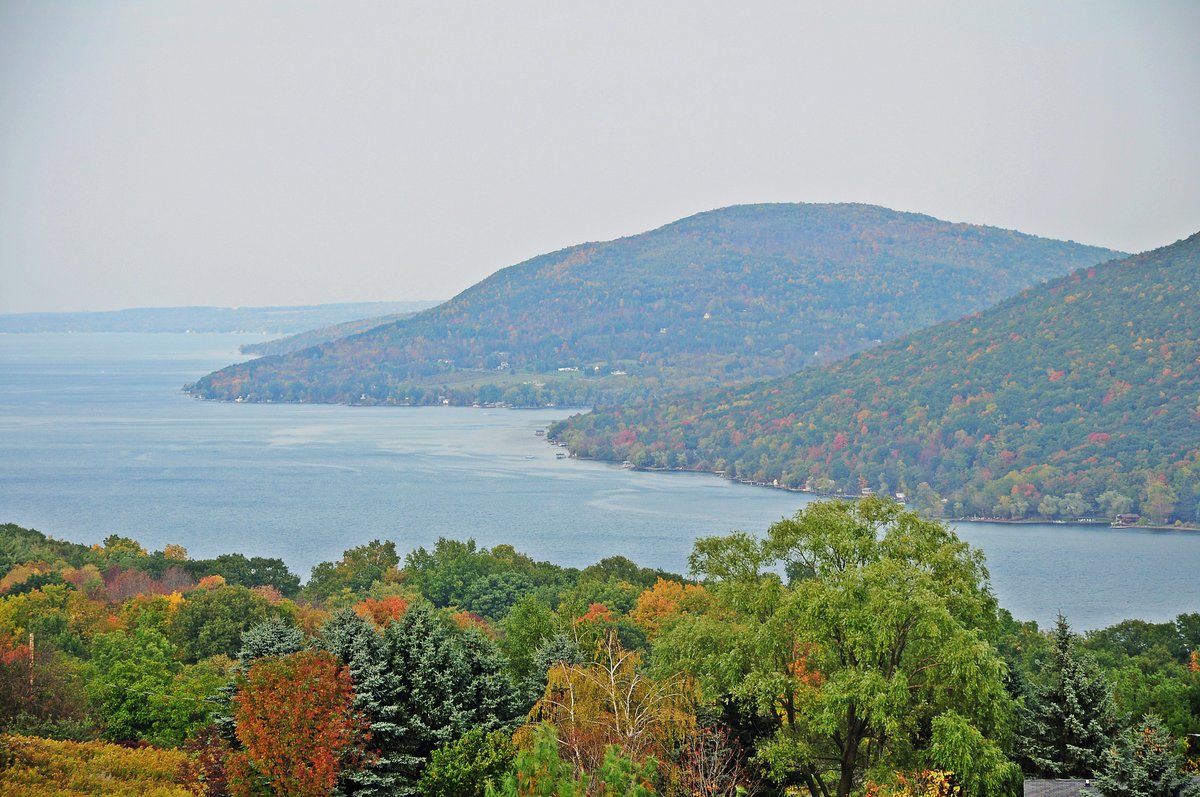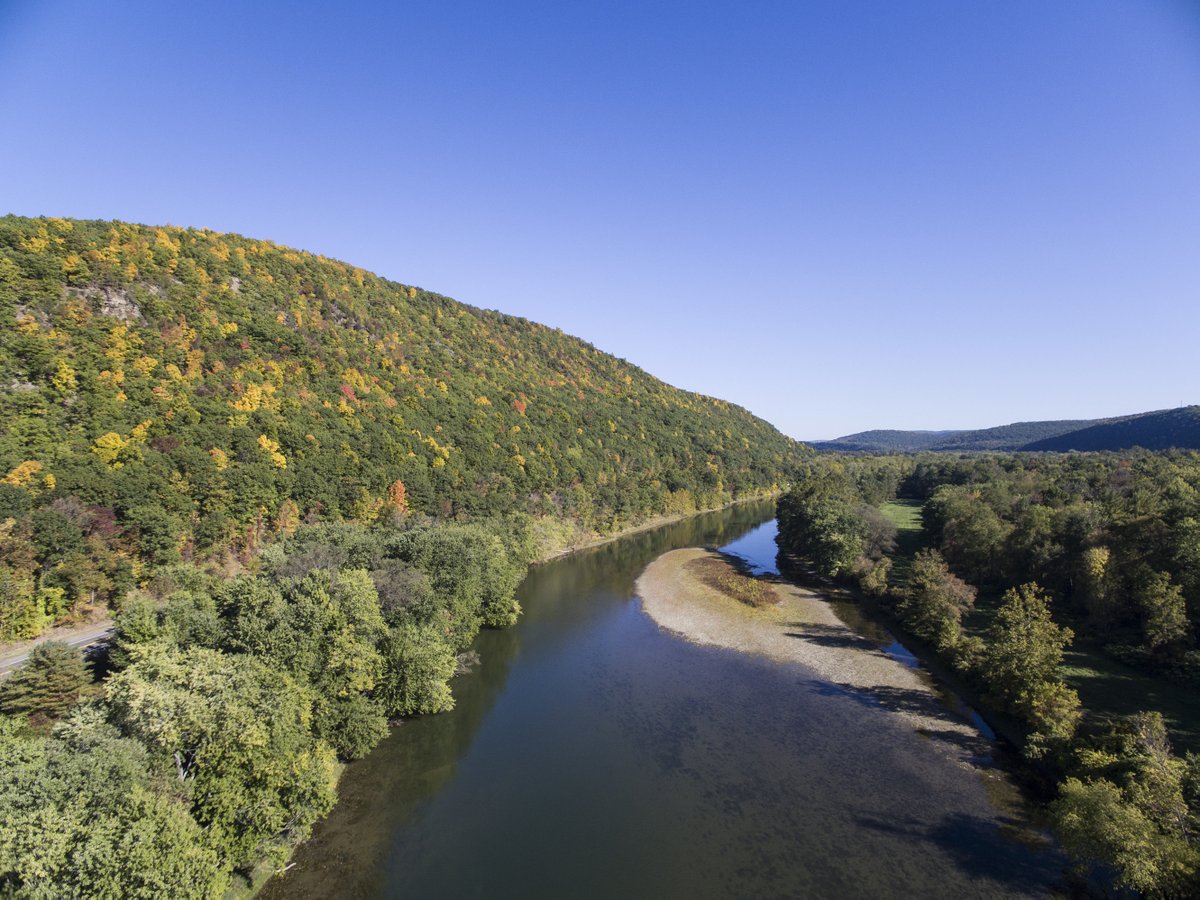Finger Lakes Land Trust Executive Director Andy Zepp recently provided the following testimony at a state budget hearing in Albany, NY, on February 7, 2024.
Testimony of the Finger Lakes Land Trust to the Joint Legislative Committee on Environmental Conservation
Senate Finance Committee Chair Liz Krueger
Assembly Ways and Means Committee Chair Helene E. Weinstein
Senate Environmental Conservation Committee Chair Deborah J. Glick
Assembly Environmental Conservation Committee Chair Pete Harckham
February 7, 2024
Thank you for the opportunity to provide testimony on behalf of the Finger Lakes Land Trust (FLLT). The FLLT is a non-profit conservation organization that has worked with landowners and local communities to conserve 32,000 acres of significant open space across the Finger Lakes region and the Southern Tier. Our organization also works with partners to undertake ecological restoration projects to reduce runoff to our lakes while enhancing habitat for fish and wildlife.
The FLLT has forged strong partnerships with the Department of Environmental Conservation as well as the Office of Parks, Recreation & Historic Preservation, and the Department of Agriculture & Markets. For the first two agencies, we have completed cooperative acquisition of key properties identified as priority projects in the state’s Open Space Plan. The FLLT has also received grant funding to complete projects from each of the three agencies.
In terms of Governor Hochul’s proposed budget, I would first like to take this opportunity to applaud her request for $400 million in funding for the state’s Environmental Protection Fund (EPF). Funding at this level will ensure the continuation of environmental programs that are vital to the future of our state. In the Finger Lakes region, land acquisition funding and support for water quality projects is particularly important to address the threat of toxic algae outbreaks as well as increasing development pressure that threatens our last remaining undeveloped lakeshore and other sensitive natural areas.
While increased staffing at the Department of Environmental Conservation should be a priority at this time, we do request that the proposal to use EPF funding for this purpose be rejected. The impact and longevity of the EPF are in part because it has been utilized to fund specific projects and is not diverted to cover staffing needs that are better supported by other revenue sources.
The EPF has been essential to several land conservation projects completed by the EPF including:

Photo: Matt Champlin
- Carpenter’s Falls – a scenic cascade and popular destination for residents and tourists. Forests associated with this project also help reduce runoff to Skaneateles Lake–the unfiltered source of drinking water for the City of Syracuse;

Photo: Nigel Kent
- Bare Hill–a unique promontory overlooking Canandaigua Lake that is of special significance to members of the Seneca Nation;

Photo: Bill Hecht
- Chemung River Corridor–the acquisition of lands bordering the river in the vicinity of Corning and Elmira that provide habitat for Bald Eagles and black bears while providing outstanding opportunities for outdoor recreation.
And just last week, based on this strong partnership, the Finger Lakes Land Trust completed its largest single acquisition to date–the purchase of the 990-acre Bad Bear Hill property for $1.2 million. Located just outside Corning, this property features one mile of frontage on the Canisteo River and miles of hiking trails.
This latest acquisition follows another recent conservation success–the FLLT’s acquisition of more than 3,000 feet of Cayuga Lake shoreline at Bell Station. Once slated for a nuclear plant, this property is now open to the public and on its way to becoming a state wildlife management area.
Unfortunately, these projects are part of a growing backlog of land acquisition projects involving the DEC and non-profit conservation organizations. The FLLT today owns 19 properties with a market value of more than six million dollars that are awaiting transfer to the State of New York. While some are recent purchases, one of the properties has been awaiting transfer since 2012.
The FLLT is not alone in this regard. New York land trusts are currently holding over 100,000 acres of land that was acquired upon the request of the state, with a market value of over $150 million. This slowdown is largely due to two issues:
- The lack of adequate staffing at the Real Property Bureau and the Office of General Counsel at DEC and within the Real Property Bureau at the Office of the Attorney General;
- The state’s current approach to property title review involves a higher standard than is typical in the private sector and does not include the acceptance of title insurance to resolve title issues.
In addition, streamlining of different aspects of the acquisition process could result in improvements without compromising the integrity of the acquisition program.
Given the extent of the current project backlog, a concerted and sustained effort on the part of the DEC and the Office of the Attorney General will be called for. Additional staffing of the real property bureaus and the office of the general counsel should be prioritized. Within DEC, additional staff are needed at both the central and regional offices.
We call on the Legislature for assistance in streamlining the state land acquisition process in their one-house budgets. To realize our state’s conservation and climate goals and fulfill the wishes of voters who strongly support the Bond Act as well as the EPF, the state’s land acquisition program must be improved and streamlined.
Regrettably, land protection in New York has slowed in recent years. In 2022, DEC & NYS Parks acquired just 5,056 acres combined. Contrast that number to the historical average of 70,000 acres each year over the history of the EPF.
One immediate step that can be taken to increase the pace of land protection is to include language in your Senate and Assembly budget proposals expressly authorizing the Real Property Bureau of the Office of the Attorney General to use private title insurance as a means of achieving marketable title. Such an allowance would be consistent with common real estate practice, as well as allowable practices in virtually all other state and federal land acquisition programs.
In contrast, New York State undertakes its own review of land titles, sometimes going back one hundred years or more in an attempt to prove perfect title. This materially slows down transactions and open space conservation program implementation, depriving communities across the state of the benefits of these projects. In addition, these lengthy periods impact the public purse due to the accrual of additional holding costs while properties are being held by land trusts or other entities. Again, there are currently more than 100,000 acres valued over $150 million pending transfer.
Land conservation programs are vital to the future of the Finger Lakes region and New York State as a whole. These projects secure public drinking water supplies, sequester carbon, meet growing demands for outdoor recreation opportunities, and are essential to our quality of life.
In the face of ever greater pressures upon our undeveloped lands, prompt action is needed to ensure that these valued programs are put back on track. Doing so will ensure that future generations of New Yorkers will have the same opportunity to experience the tremendous diversity of natural resources for which the state is known.
Thanks very much for the opportunity to provide testimony here today.
Andrew Zepp
Executive Director, Finger Lakes Land Trust

